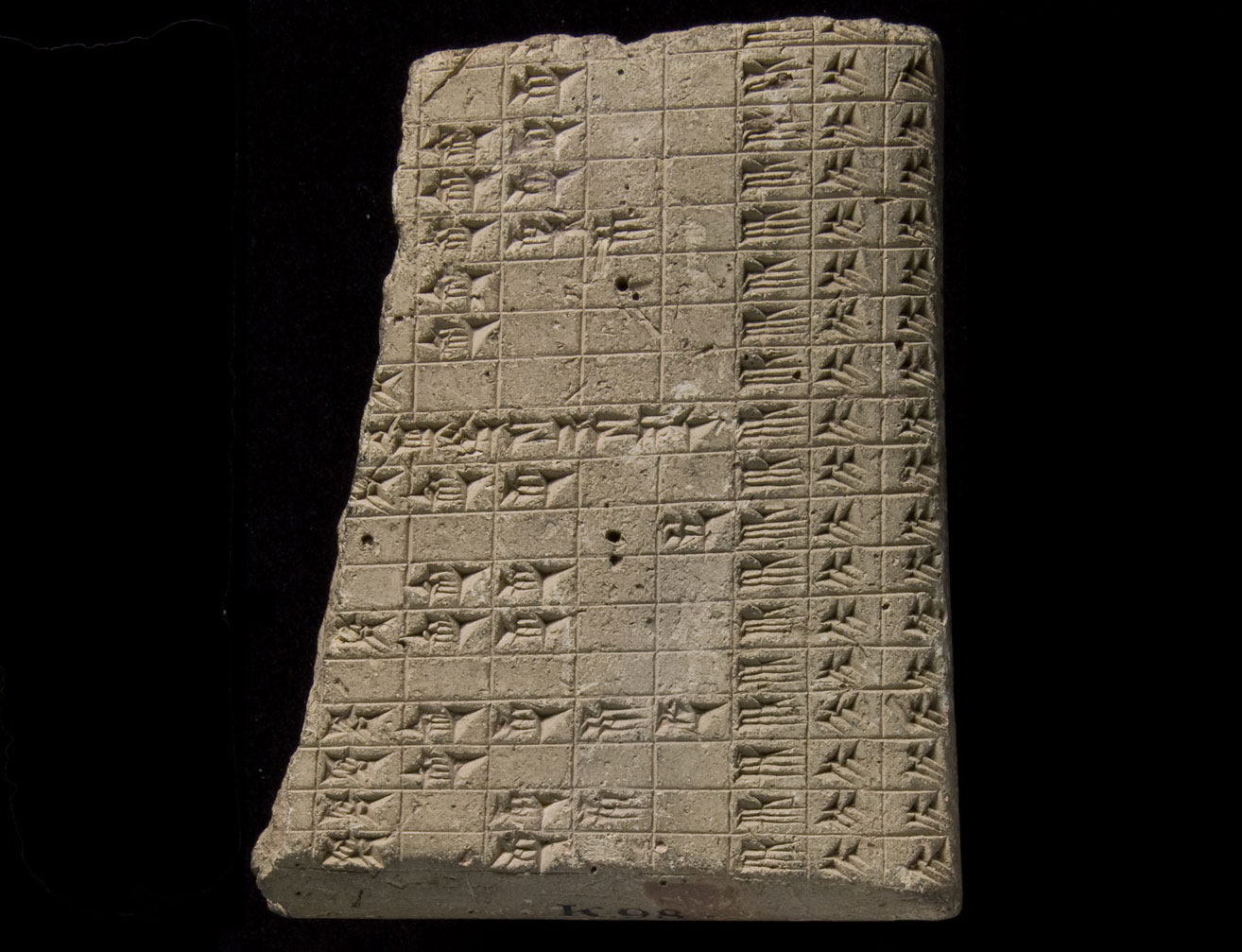Every day has its own activity
26 February 2025
The calendars of the inhabitants of ancient Mesopotamia list the days (hemerologies) or months (menologies) that are favourable or unfavourable for undertaking certain activities, starting with ritual acts.

These calendars of auspicious and inauspicious days probably existed as early as the beginning of the 2nd millennium BCE, but the oldest manuscript dates from the first half of the 14th century and was discovered in Dur-Kurigalzu, the capital of the Kassite king, Kurigalzu I, located about 30 kilometres west of Baghdad. However, it was in the 1st millennium, under Sargon II and his successors, that these texts played a major role in everyday life, as evidenced by the numerous references to them in the letters of astrologers and soothsayers at the royal court. One of them wrote to the king: ‘It is written in the hemerologies of the month of Nisanu (March-April): “He must not take an oath on the 15th day, for the god will seize him”, therefore they may draft the treaty on the 15th day, but conclude it only on the 16th day.’
The days of the month, or even the months themselves, were therefore considered to carry positive or negative influences affecting events or activities undertaken. The hemerologies (calendar of days) and menologies (calendar of months) had to be consulted before knowing the best times to carry out an action. The 7th, 14th, 21st and 28th days of each month seem to have been systematically unfavourable, and these days corresponded to the phases of the moon, which therefore had a significant influence on human activities.

In the hemerologies (biblānu), the activities that are permitted or prohibited primarily concern religious life, such as making offerings to various deities, going to the temple, anointing oneself and wearing pure clothes, or reciting prayers. Some days are indicated as entirely or partially favourable. Thus, half of the fourth day of the first month of the year (Nisanu) is favourable, while the tenth day of the third month (Simanu) is entirely favourable. On other occasions, the place where the action may take place is specified: on the 13th day of the month of Simanu, ‘in the street is favourable’.
Certain days have dietary restrictions: it is advisable to refrain from eating certain foods, with the risk of adverse consequences sometimes mentioned. In the month of Nisanu (March-April), on the second and third days, fish and leeks should not be eaten. In the month of Teshritu (September-October), on the second day: ‘man shall not eat onions, lest an elderly person in their family will; he shall not eat fennel or cress, lest there be hostility towards him; he shall not eat cooked meat, lest he be covered with leprosy’; on the seventh day, ‘he shall not eat pigeons, lest he fall ill’; he shall not eat fish or leeks, lest a scorpion sting him‘; on the 28th day ’he shall not eat pork‘. The following month, on the tenth day ’he shall not eat dates, lest his teeth rattle’.
Other topics covered include health and marriage. Thus, in the month of Nisanu (March-April), on the third day, ‘he shall take a wife; this man will be in good health and his heart will be well. This man will live to a ripe old age’. Similarly, on the eighth day of the following month, Ayyaru, ‘he may take a wife and his heart will be well’. It is important to be careful not to get the day wrong, because on the preceding day, the seventh day, the opposite is true: ‘he shall not take a wife, lest distress fall upon him’. The month of Nisan also has many unfavourable days: on the 7th, 9th, 14th, 19th, 21st, 28th, 29th and 30th, there is a mention of ‘dangerous days, moaning for the sick, the doctor shall not lay hands on the sick’.
Other human activities are also mentioned, such as travel. On the 23rd day of the third month of the year (Simanu): ‘he shall not go out in a boat, or the boat will sink, and he will suffer harm’, and on the fourth day of the following month (Tammuzu): ‘he shall not go out on the road, lest he suffer loss, for a lion will leap upon him’. Legal actions are also mentioned, on the fifth day of the first month of the year: ‘he shall not lay charges against someone, lest he suffer harm’, or wealth, on the fourth day of the third month: ‘he shall have barley and money’.

The later menologies are known from the series entitled ‘if he destroys, if he builds’ (iqqur īpuš), which exists in two different forms, depending on whether it is organised according to the activities undertaken or according to the months of the year. The activities may be domestic, religious, or related to construction work, agricultural work, etc.
These calendars of auspicious and inauspicious days and months already included omens related to births and were therefore precursors to the horoscopes that appeared in the 5th century BCE, linking individuals' destinies to the observation of the stars.
Today, in some cultures, Friday the 13th is considered an unlucky day, while for others it is a lucky day. Friday the 13th has its roots in Christianity: the crucifixion of Jesus was on a Friday, and on the preceding day there were 13 guests at the meal shared with his apostles, the 13th of whom was the traitor Judas.


